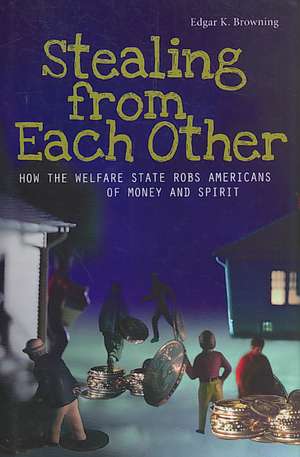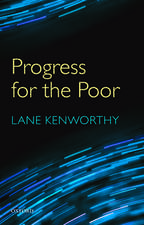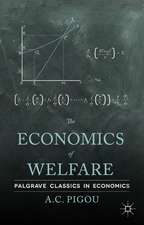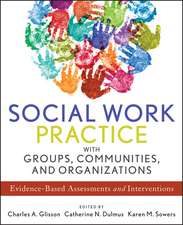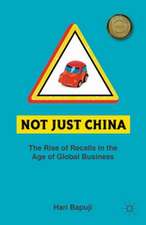Stealing from Each Other: How the Welfare State Robs Americans of Money and Spirit
Autor Edgar K. Browningen Limba Engleză Hardback – 29 iun 2008 – vârsta până la 17 ani
Preț: 308.33 lei
Preț vechi: 375.27 lei
-18% Nou
Puncte Express: 462
Preț estimativ în valută:
59.02€ • 62.00$ • 49.60£
59.02€ • 62.00$ • 49.60£
Carte tipărită la comandă
Livrare economică 12-26 martie
Preluare comenzi: 021 569.72.76
Specificații
ISBN-13: 9780313348228
ISBN-10: 0313348227
Pagini: 240
Dimensiuni: 156 x 235 x 25 mm
Greutate: 0.52 kg
Editura: Bloomsbury Publishing
Colecția Praeger
Locul publicării:New York, United States
ISBN-10: 0313348227
Pagini: 240
Dimensiuni: 156 x 235 x 25 mm
Greutate: 0.52 kg
Editura: Bloomsbury Publishing
Colecția Praeger
Locul publicării:New York, United States
Notă biografică
Edgar K. Browning is Professor of Economics at Texas A&M University. He has published extensively on issues related to government expenditure and tax policies and is the co-author of two bestselling economics textbooks. In 1987, he was elected President of the Southern Economics Association.
Cuprins
AcknowledgmentsIntroductionOne: Egalitarianism and the MarketTwo: InequalityThree: Group InequalitiesFour: Incomes Around the WorldFive: PovertySix: Our Trillion Dollar Welfare SystemSeven: Social Security and MedicareEight: More TransfersNine: TaxationTen: The (Many) Costs of TransfersEleven: Just Say NoIndex
Recenzii
A collection of unique, but financially sound ideas for America, Stealing From Each Other is a must for community library economics and social issues collections.
The rise of equalitarian ideology has driven Americans to steal from one another. Browning explains that certain kinds of equality have been a cherished value in America. Equality under the law and, within reason, equality of opportunity is consistent with a free society. Equality of results is an anathema to a free society and within it lie the seeds of tyranny.
Browning (economics, Texas A&M Univ.) is unafraid of reaching definite conclusions on a whole host of contested issues in the general areas of income distribution and redistribution.Browning supports his arguments with empirical research. This work, which is accessible to a wide audience, is likely to provoke debate on this important, controversial topic. Recommended. All readership levels.
Browning's criticism of the minimum wage as a job destroyer is right on target. [.] I must also commend Browning for not making his book exclusively about the economics of redistribution. He also questions its morality. [.] It may be politically impossible to escape from the quicksand of the redistributive state, but Professor Browning has made it clear that everyone would benefit if we could do so - everyone except for the interest groups that have a stake in maintaining the status quo.
The rise of equalitarian ideology has driven Americans to steal from one another. Browning explains that certain kinds of equality have been a cherished value in America. Equality under the law and, within reason, equality of opportunity is consistent with a free society. Equality of results is an anathema to a free society and within it lie the seeds of tyranny.
Browning (economics, Texas A&M Univ.) is unafraid of reaching definite conclusions on a whole host of contested issues in the general areas of income distribution and redistribution.Browning supports his arguments with empirical research. This work, which is accessible to a wide audience, is likely to provoke debate on this important, controversial topic. Recommended. All readership levels.
Browning's criticism of the minimum wage as a job destroyer is right on target. [.] I must also commend Browning for not making his book exclusively about the economics of redistribution. He also questions its morality. [.] It may be politically impossible to escape from the quicksand of the redistributive state, but Professor Browning has made it clear that everyone would benefit if we could do so - everyone except for the interest groups that have a stake in maintaining the status quo.
